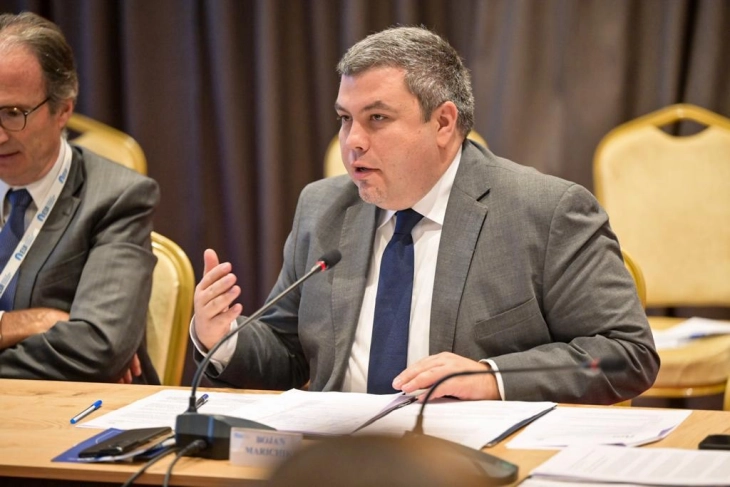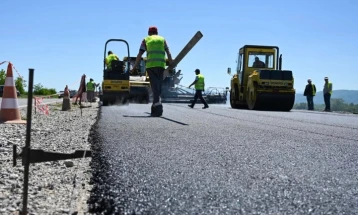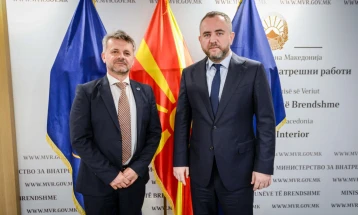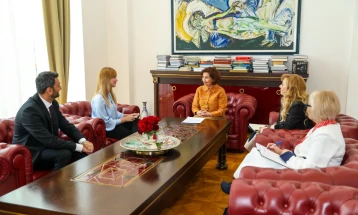Marichikj: 2030 as plan and chance for EU membership is driving force for swift reforms and changes
- A timeframe for EU membership is to candidate countries a chance and a plan for those who will be ready to join the EU. This will also restore the credibility of the enlargement policy, Deputy PM for European Affairs Bojan Marichikj told Thursday's high-level policy dialogue of the School for Transnational Governance (EUI) on the EU's open strategic autonomy and the Western Balkans, in which he participated at the invitation of the European Institute in Florence.

Skopje, 19 October 2023 (MIA) - A timeframe for EU membership is to candidate countries a chance and a plan for those who will be ready to join the EU. This will also restore the credibility of the enlargement policy, Deputy PM for European Affairs Bojan Marichikj told Thursday's high-level policy dialogue of the School for Transnational Governance (EUI) on the EU's open strategic autonomy and the Western Balkans, in which he participated at the invitation of the European Institute in Florence.
"2030 as a date for a European perspective of the region with a concrete plan should be our motive and driving force for changes, an opportunity that we should take advantage of," Marichikj said, pointing out that this is the key to restoring trust and popularity for the idea of the EU, not just for the European integration process, the Secretariat for European Affairs said in a press release.

In this regard, he added that it is not very popular to talk about time frames, noting that if there is no time frame, there will always be an excuse as to why and how EU enlargement should be delayed.
Marichikj also mentioned a plan to speed up the accession negotiations, noting that should be presented in the next few weeks.
"The Thessaloniki promise of a European perspective needs to be delivered through a strategic plan, but in the meantime there are several things that can be done between now and formal EU membership, in addition to the negotiation process," said Marichikj.
He pointed out that the plan to speed up the Western Balkans' EU accession is something that pro-European politicians, structures, governments, and civil society organizations have been waiting for a long time. He noted that bilateral topics can be a major obstacle and a wall between the EU and the Western Balkans, which is why, according to him, it is necessary for the EU to have a special focus on managing bilateral disputes.

"Together we must make these plans happen and succeed, in order to complete the integration of the Western Balkans and defeat nationalism as a concept," Marichikj said, adding that the region needs more of Europe, a stronger and more prosperous Europe, and it is only possible if both parties work on the task.
EU Ambassador David Geer and Italian Ambassador to North Macedonia Andrea Silvestri also attended the seminar organized by the European University Institute in Florence.

The high-level policy dialogue of the School of Transnational Governance (EUI) aims to brief participants on the latest developments at an EU level and exchange views on how the "EU's Open Strategic Autonomy" can influence the future of the Western Balkans and the EU enlargement, as well as how to fit into the new geopolitical reality, reads the press release.
Photo: Secretariat for European Affairs







